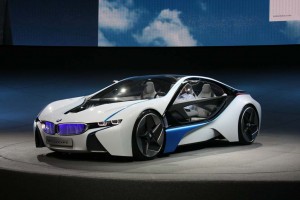As the auto industry reinvents personal transportation, in the coming decades, expect luxury automakers to lead the way.
Premium-segment automakers have a responsibility to lead in innovations such as new engine technology and lighter materials, Jim O’Donnell, president of BMW North America, told the Management Briefing Seminars, in Traverse City, Michigan that those advances will eventually filter down to more mainstream models.
“We know we have the opportunity to reimagine mobility,” O’Donnell said.
Like all automakers, the 2008-09 economic meltdown had a major impact on BMW, but the verdict is still out on the long-term effects, he said – even though the German marque is showing strong signs of recovery, with a solid second quarter profit.

The changes coming offer both opportunities and challenges for luxury makers, cautions BMWNA CEO Jim O'Donnell.
But pressure on earnings could grow. BMW’s research shows that many of its customers feel as though they have spent too much in the past. O’Donnell said that they want to keep their cars longer and take better care of them, so they might want to buy better ones to start. O’Donnell said BMW sees opportunities as the playing field changes.
“There will continue to be an excellent market for premium automobiles,” he insisted.
So what will future premium vehicles look like? Buyers want something that feels and looks premium, not necessarily something that is just bigger.
“In 10 years, premium vehicles will be designed for more than size and stature,” O’Donnell predicted.
While future BMWs may get smaller, the brand will still have a focus on performance and an involved driving experience.
“Regardless of the configuration, BMWs will be about performance and dynamics,” O’Donnell concluded.

